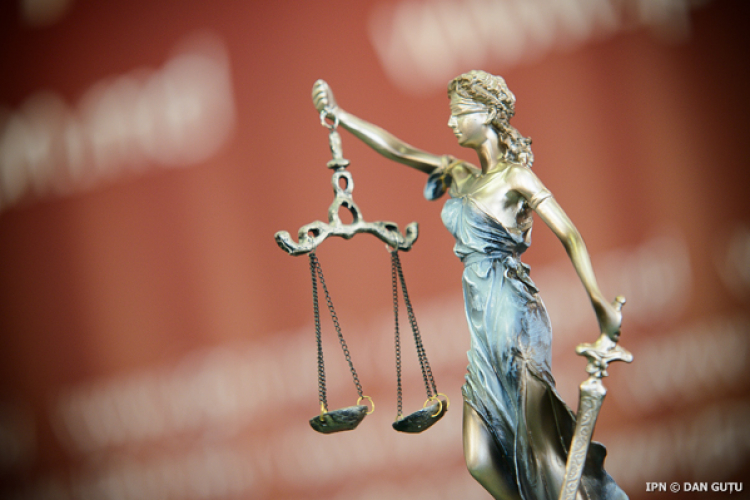
The justice sector reform is not for those who do not look far into the future. The momentary actions in justice often turn out to be harmful to justice. The justice sector reform is a difficult and long-lasting challenge, considers the president of the Legal Resources Center of Moldova Vladislav Gribincea. According to him, the serious problems in justice are related to the independence of prosecutors and judges, professionalism of some of them and integrity of justice sector players. The issue was developed in a forum titled “Justice Sector Reform and Corruption Fighting”, IPN reports.
According to Vladislav Gribincea, no justice sector reform will produce results without an efficient approach to corruption fighting. Will to reform the justice sector is also needed. It is hard to find this in a country that has been affected by corruption, nepotism and other problems during decades. “We will be unable to ensure perfect justice in three-four years, but can take measures for justice in 15 years to be different, in the positive meaning,” he stated.
The Public Opinion Barometer shows that trust in justice stands at 22%, down from 25% when the first justice sector reform strategy was being drafted. By the level of corruption, Moldova ranks 12th out of 14 countries at regional level. By Government constraint, it ranks 14th out of 16 countries. Among the most problematic sectors are penal justice, civil justice, fight against corruption and implementation of laws. Instead, Moldova has good positions in terms of order and security and Government transparency, said the president of the Legal Resources Center of Moldova.
Radu Foltea, secretary of state at the Ministry of Justice, said that a series of measures in the justice sector had been taken during the last ten years, with progress being made at the legislative and institutional levels. However, the system was affected by structural and institutional problems. The lack of integrity affected the quality of justice and people’s trust. The main reasons are: persisting corruptible factors and elements that affect the integrity of justice sector players, non-uniform judicial practices, defective implementation of regulations, underdeveloped legal culture. The Ministry of Justice is drafting the strategy for ensuring independence and integrity in the justice sector in 2021-2024, whose objectives are to ensure transparent, modern, efficient and high-quality justice with responsible and upright players, etc.
Martijn Quinn, deputy head of unit at the European Commission’s Directorate General for Justice, said that Moldova has the worst position in terms of justice in the European states and the citizens to not trust it. The justice sector reform should start with real political will that should come from the highest level, from the state, not only from the Ministry of Justice. The recommendations of the Venice Commission and other European institutions represent very good reformation guidelines. Not allowing the strategy to remain on paper only is a matter of principle.
Hanne Juncher, head of the Justice and Legal Cooperation Department of the Council of Europe’s Directorate General for Human Rights and Rule of Law, noted that too many changes during a short period of time should be avoided so as to ensure the public’s trust in what is going on. The changes in the legal system should be ensured by technical, financial provisions as, in their absence, the public could deduce a failure in managing the justice reform system.
Ex-minister of justice Alexandru Tănase, ex-president of the Constitutional Court, said that when speaking about judicial independence and justice, internal and external independence should not be overlooked. External independence is the protection of judges from the interference of other state powers, while internal independence, which is the most difficult one, involves the elimination of any interference in justice from inside the judicial system. From the angle of these aspects, the situation in Moldova is formally good. Formally, there are laws that ensure sufficient independence for the judges to work transparently. But the reality is completely different. The whole judicial system is in a profound process of denial of realities that are evident to everyone. Internal independence should protect the judges from the internal hierarchy in justice. The justice sector reform adopted ten years ago didn’t lead to any reform as the politicians mimicked particular results and reported them to Brussels in percentage so as to get financial support. But things remained the same.
According to Alexandru Tănase, the political class pursued the goal of exercising full control over justice and Moldova does not yet have a moral and mature political class that can assume a real justice sector reform.












